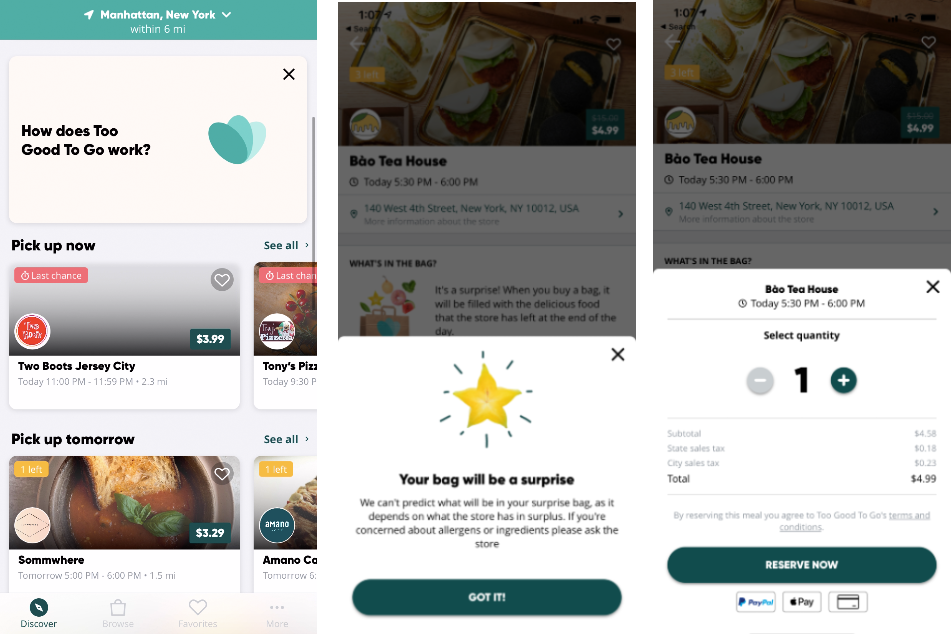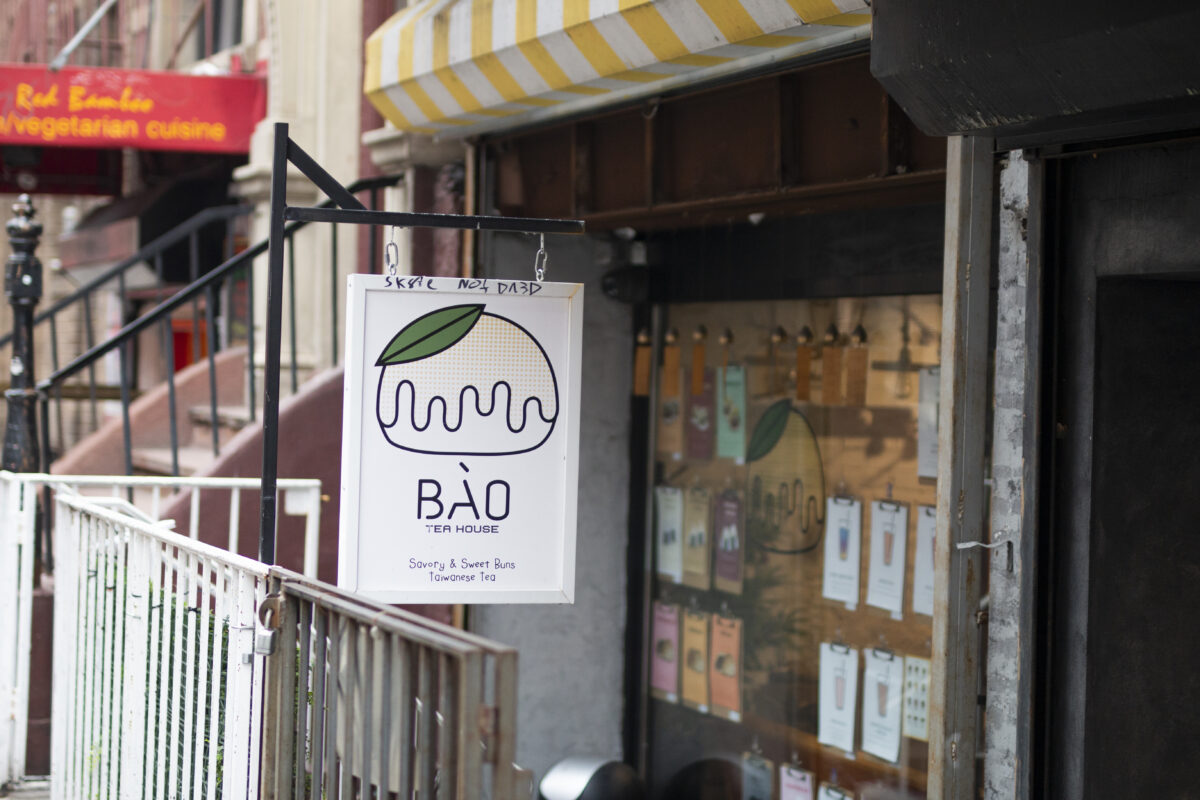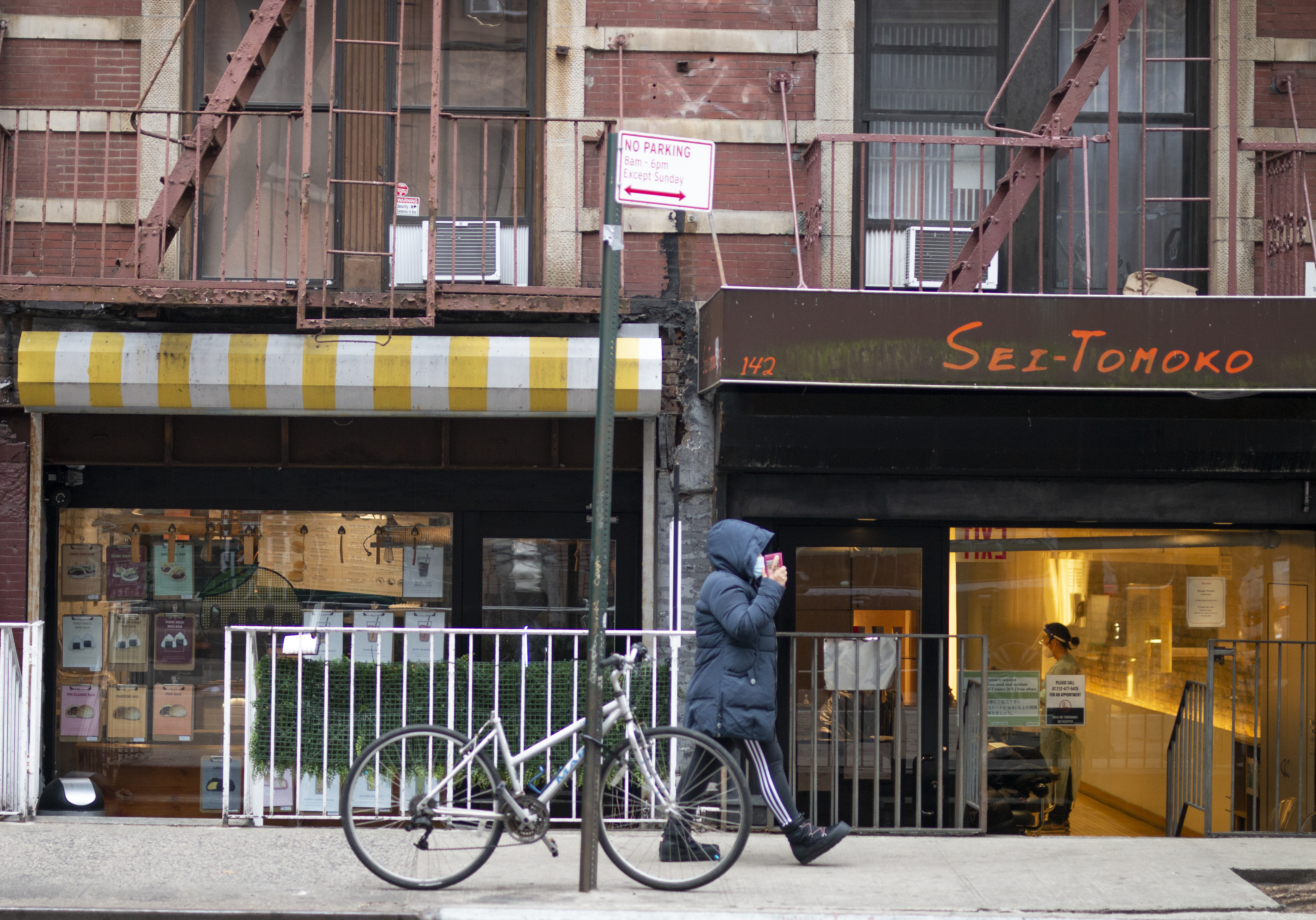Correction: A previous version of this article mis-stated the name of the co-founder of the Too Good To Go app. They are Lucie Basch, not Claire DeMarco.
New Yorkers have a new tool in the fight against food waste, and they can find it right on their phones.
Too Good To Go, which launched in New York City last fall, is an app that strives to reduce food waste by connecting customers with cafes, restaurants and grocery stores and gives them the chance to buy leftover meals and ingredients at a steep discount.
Approximately one-third of food produced for human consumption is lost or wasted globally each year, according to estimates by the Food and Agriculture Organization of the United Nations. Inefficiencies in the food system cause people to be vulnerable to food insecurity and contribute to climate change and environmental degradation, as food waste accounts for approximately 6% of the world’s greenhouse gas emissions, according to Our World in Data. The goal of the app is to help minimize waste and greenhouse gas emissions while increasing people’s access to quality food for a third of the normal price.
The app was first launched in Copenhagen in 2016 and is now used in 15 countries. In the United States, Too Good To Go launched in New York City in September and in Boston in October, with plans to expand extensively in the upcoming years.
“Too Good To Go is all about making it simple to do something and democratizing a little bit, the fight against food waste, so that it’s accessible to everyone,” Lucie Basch, co-founder and Chief Expansion Officer of the company, told the New School Free Press
After downloading the app, customers can browse local restaurants and places with leftover food available for purchase and pick up that day. Once they have found an eatery, they can purchase a “surprise bag” — a random selection of items left at the end of the day — through the app. Customers are then given a designated time to show up to the shop, where they can show the staff their purchase on the app and pick up their bag.

“Next year we definitely want to expand further on the East Coast,” said Basch, citing Philadelphia and Washington D.C., as cities where she believes a difference can be made quickly. “And then, of course, the West Coast is really ready for that kind of concept as well, so we really want to make a difference there. But eventually our ambition is to build a global movement for fighting food waste.”
Students have played a role in the growth of Too Good To Go, Basch said, noting that they have been avid users of the app, as it allows them to try new places at discounted prices. “They’ve been great ambassadors for the movement,” said Basch, who added that students have reached out to the company to launch the app in different cities and convinced stores to partner with the app.
Partners in New York include Murray’s Cheese, Metro Acres Market, Bagelsmith and Champion Pizza, with more spots added daily.
The BÀO Tea House at 140 West 4th Street in Greenwich Village, which sells sweet and savory bao buns and Taiwanese mountain tea, partnered with the app. The founder and owner of the BÀO Tea House, Alyas Mohammad Ali, was first introduced to the app when the company reached out during the pandemic and explained how the app worked.

“For us it kind of makes sense,” Mohammad Ali said. “We never want to waste any food, especially the food that we make. I know during the pandemic, the market is very unstable and uncertain, so I think the best way to do it is to partner with Too Good To Go.”
Emphasizing the economic benefit rather than the environmental impact Mohammad Ali said, “I think it does not only benefit us. It benefits both sides,” referring to both food companies making profit off of food that would otherwise go to waste, and to consumers receiving food items at a discounted rate.
According to Basch, the three arguments made when pitching the app to businesses is that it cuts down on food that would typically be thrown away which then saves companies money, it brings in customers that may have not known about the restaurant or grocery store until seeing it on the app, and that sustainability is important for branding to consumers. Though this is all beneficial for companies, it is often difficult to get in contact with business owners and managers.
“In terms of stores, the biggest challenge we have is to reach the decision maker,” said Basch. “It takes a little while before we can actually reach out to the right person, and I think that’s the biggest bottleneck to persuading more and more people.”
More than 33 million people around the world are saving food through the app and over 76,000 restaurants and grocery stores have joined with the app, resulting in over 100,000 meals saved per day, according to Too Good To Go’s website. The company’s website also includes a blog providing data about global food waste and its implications, tips to reduce food waste at home and recipes that reuse food that would otherwise be thrown out. The company is also a Certified B Corporation, meaning it is legally required to examine how businesses decisions affect workers, customers, supplies, community and the environment
“I think we really need to address it from all parts,” said Basch, who believes there must be a systemic approach to address food waste, such as having national and local governments implement regulations that enable and incentivize all players in the food systems to reduce food waste. “As consumers, we definitely have a role to play and To Good To Go is the way to do this, but also at home you can do a lot more things to not throw away food anymore.”







